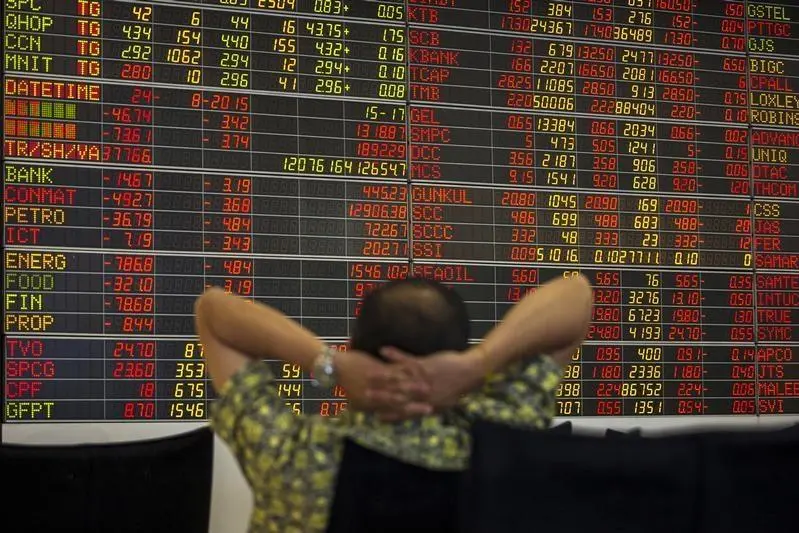PHOTO
SINGAPORE - Asian stocks inched up on Friday but lingering disappointment that central banks merely affirmed their monetary support this week, while not promising new stimulus, kept a lid on gains.
Oil rose after OPEC flagged a crackdown on members that did not cut output, and the dollar was back to the bottom of its recent range following its brief journey higher after Wednesday's Federal Reserve meeting.
The Fed promised to keep rates low for a long time, but gave no new hints about any further monetary support.
Hints did come from the Bank of England and the Bank of Japan on Thursday, but action was not forthcoming either.
U.S. stock futures wobbled either side of steady through the Asia session and S&P 500 futures were last up 0.04% while Nasdaq 100 futures were up 0.5%. EuroSTOXX 50 futures were down 0.1% and FTSE Futures fell 0.2%.
MSCI's broadest index of Asia-Pacific shares outside Japan rose 0.4% to head for its first weekly gain in three weeks.
Japan's Nikkei ended Friday down 0.2% for the week, while markets in South Korea and Australia scraped small weekly gains.
The Shanghai Composite was the only market to make noteworthy gains, with financials leading a 1.8% rise.
"The bigger picture issue is that markets, particularly growth and tech stocks, have run very hard into the end of August, which has left them somewhat vulnerable," said AMP Capital chief economist Shane Oliver.
"There's uncertainty ahead of the U.S. elections...China-U.S. tensions keep creeping in and on top of that there's now uncertainty about how the recovery will proceed from here, in the absence of more stimulus in the U.S."
Data on Thursday showed the recovery in the U.S. labour market is stalling. Consumer confidence data is due later on Friday.
"Directionless trading in most asset classes suggests fatigue in the risk rally," said strategist Terence Wu of Singapore's OCBC Bank.
"The market will be craving for the next round of stimulus injection to sustain the feel-good, risk-on factor...the question is when and under what circumstances will the next injection arrive"
YUAN, YEN STAND OUT
The currency market's standout movers this week have been the yuan and yen, notwithstanding volatile trade in sterling as it has been buffeted by Brexit turmoil and the Bank of England saying it would consider negative interest rates.
In afternoon trade in Asia, the yuan was up 1.2% for the week at 6.7514 per dollar and on track for its longest weekly winning streak since early 2018 as bond inflows into China's capital-controlled economy buoy the currency.
"We see no signals from the (People's Bank of China's) daily yuan fixing that suggest authorities are concerned about recent trends," said Nomura analysts in a note.
"We remain short USD/CNH through both cash and options."
The yen was also solidly bought leading into a long weekend in Japan. Shrugging off a dovish-sounding Bank of Japan it is set for its best week since January with a 1.3% gain and last sat just shy of a seven-week high at 104.81 per dollar.
In commodity markets, oil held sharp gains after OPEC and its allies said the group will take action on members that are not complying with deep output cuts.
Brent crude futures were last 0.6% firmer at $43.55 a barrel and U.S. crude futures rose 0.5% to $41.19 a barrel.
U.S. Treasuries picked up where they left off, with yields on 10-year U.S. government debt at 0.6822% after concerns about possible inflation rises in the future helped reverse a bond rally in overnight trade.
Later on Friday, U.S. consumer confidence data is due and Fed board member James Bullard is to make a speech on the challenges of the COVID-19 recovery, both at 1400 GMT.
(Reporting by Tom Westbrook in Singapore. Additional reporting by John McCrank in New York; Editing by Sam Holmes and Christian Schmollinger) ((tom.westbrook@tr.com; +65 6318 4876;))





















